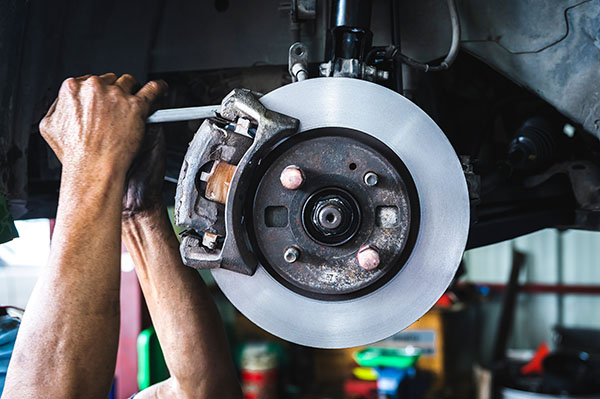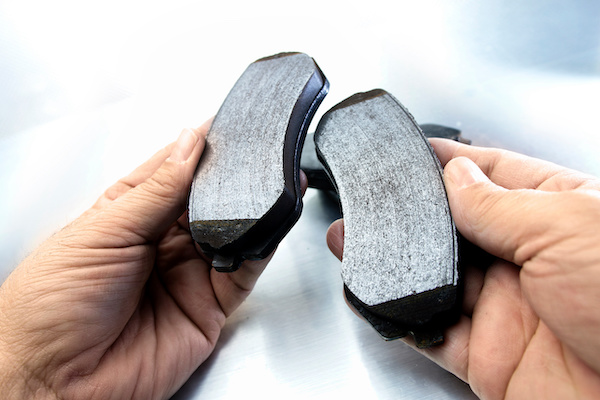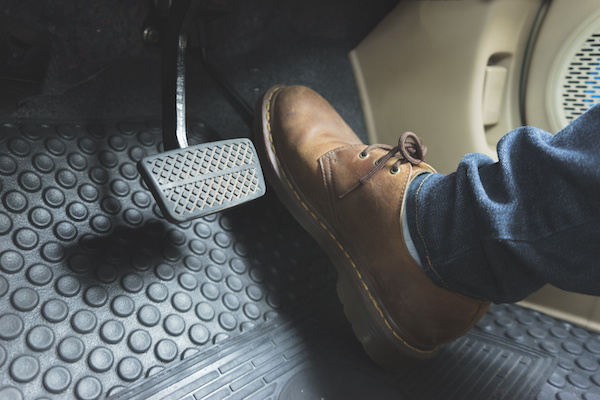Posted on 10/31/2023

Amidst this exhilarating experience, there's a crucial element that ensures your safety and control—the often-overlooked brake fluid. While it might not be as glamorous as the sleek exterior or the powerful engine, brake fluid plays a pivotal role in your vehicle's braking system, enabling you to navigate sharp turns and sudden stops with precision and confidence. Understanding the essence of brake fluid and its vital function is essential in maintaining your vehicle's safety and ensuring a smooth and secure driving experience. The Role of Brake Fluid Brake fluid, often referred to as hydraulic fluid, serves as the lifeblood of your vehicle's braking system. It transmits the force applied to the brake pedal to the braking components, enabling the conversion of kinetic energ ... read more
Posted on 6/30/2023

Brake pads are vital, integral parts of your vehicle. You need them every day because they provide proper friction to slow down your car. That's why you must choose the right pads for the ultimate convenience. Your choice will depend on the materials used, sourcing reliability, and when you need to replace them. This post highlights the different types of brake pads to aid in decision-making. Semi Metallic Semi metallic brake pads are one of the most popular options because of their optimal performance. Metal is the highest part of their composition and often includes other materials such as copper, steel, and graphite lubricant. They are the ideal choices for the best returns on investment because they are more durable and long-lasting. Ceramic Brake Pads Ceramic brake pads are an advanced element of the automotive industry. They are costlier than other brake pads but more convenient. They feature high durability, stability, and quieter braking. Besides, they are wear-resistan ... read more
Posted on 9/29/2022

What do you do to slow or stop your vehicle? Step down on the brake pedal, of course. But, the brake system is a lot more complex than a simple pedal. It involves many parts to produce the pressure necessary to slow down your wheels’ rotation. Over time, these parts will wear down and need service. Typically, you can tell when your brakes are going bad using your senses. Fortunately, brakes show early signs of weakness like squeals and squeaks. With routine and regular brake service, you shouldn’t find your brakes fail abruptly. Otherwise, failing brakes can be very frightening and put you and your loved ones at risk of an accident. Below are some of the symptoms of bad or failing brakes: Brake warning light or ABS light illuminated on dashboard Squealing, squeaking, or grinding noises Spongy brake pedal Shaky or vibrating brake pedal Brake pedal goes straight down to the floor Car pulls to one side when braking Brake pedal feels stiff a ... read more
Posted on 12/21/2021

On the highway, you're driving your car, likely listening to your favorite tunes, and have the AC blasting. Then the traffic slows down, and you've noticed that your car vibrates. You may be questioning to yourself, "why does my car feel like an angry massage chair?" when you are driving on a smooth road. Read on to see what causes the car to vibrate and why. Most Likely Causes of Car Vibration:Alignment Issues If the front end alignment is off balance, it would cause vibration. Another thing that could cause alignment issues is the wheel could be unbalanced. There could also be suspension issues. Either way, you'll want to get this checked as soon as possible, as it's dangerous driving a car that has either issue. Brake Pad Issues Overtime, the brake pad can be worn out or even damaged. You'll know that it's on its way out when you stop the car, as it will vibrate with squeaking ... read more